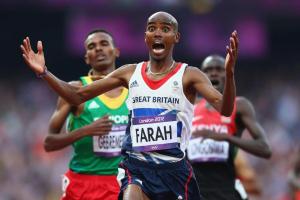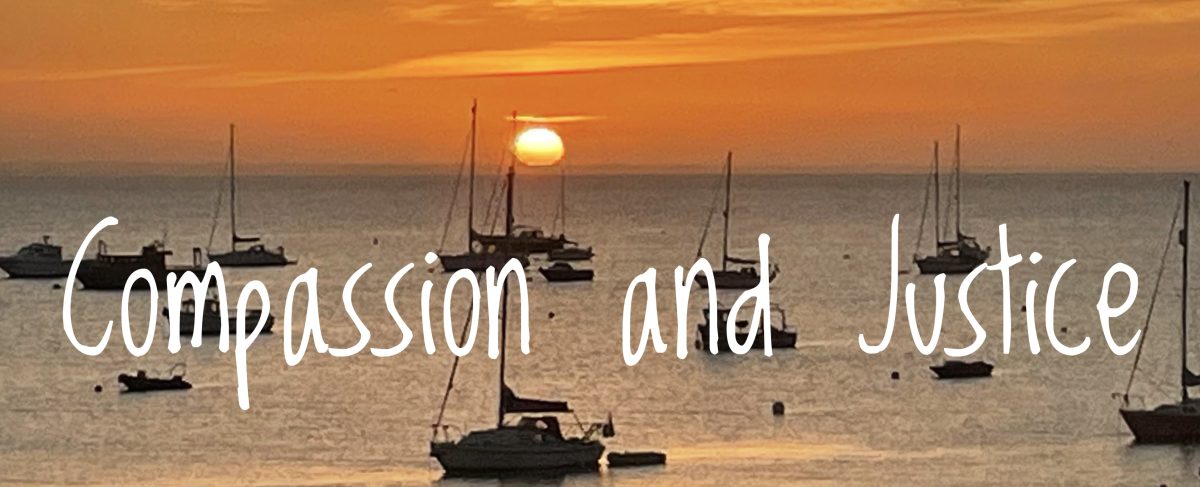
In the Olympic Games that have just finished we saw an outpouring of patriotism hopefully channelled in the right direction. In the United Kingdom, we cheered as our athletes achieved success and won medals of gold, silver and bronze. Because I have always held a worldview, I thought that I was not particularly patriotic, but I found myself screaming at the television set when Mo won the 5000 metre race after having already been awarded a gold medal for the 10,000 metre race.
But patriotism can have a negative effect. It divides people into “us and them”. It can cause us to consider other people as less important, or even inferior, to us. In crying out, “British Jobs First”, what seems like patriotism looks more like selfishness and racism. I would defend the right of any country to defend itself against invaders. But patriotism can be used to stir up the emotions and ultimately result in sending our young men to fight for causes with more dubious aims.
Going back to the Olympics, why did it matter so much to me that we got more than our statistical allotment of gold medals? Why did I cheer for Mo? Mo was born in another country. His skin colour is different from mine, and he is a Muslim and I am a Christian. But he is a British citizen and was obviously proud to represent Great Britain.
Nation States
As human beings, we want to “belong”. We need to belong to a family, a community or a tribe. History has divided the world into over 200 nation states. In many cases, the boundaries of these countries represent lines drawn on a map by past colonial powers. Sometimes these boundaries do not take into account tribal divisions. This has led to unrest, war and massacres.
In my country, the United Kingdom was created after many years of fighting between Angles and Saxons, Danes and Norse, Welsh and Scottish. Eventually unity was achieved – although many people from Wales and Scotland want independence.
Many countries I know well, like Nigeria, Uganda, India, Sri Lanka and Indonesia, try very hard to create a sense of national identity. But different races or people groups having different languages and different religions make unity difficult to maintain.
Imagine
Imagine there’s no countries,
It isn’t hard to do.
Nothing to kill or die for,
And no religion too.
Imagine all the people living life in peace

John Lennon rather idealistically imagined a world where people were not divided by countries or by religion. I feel a little uncomfortable about the phrase, “and no religion too”. Having a faith in God and a creator is I believe fundamentally important to us all. But religion, when it separates people into “us and them”, is divisive and has been the cause of much unrest, killing and warfare throughout history, including recent history.
It is not easy to see how John Lennon’s dream of “no countries” could be achieved. One possibility is a “world government”. This has many negative connotations to some Christians afraid of an anti-christ! Looking back at history, one cannot be optimistic about the record of big empires controlling big chunks of the world like the Romans or the Mongols. (Or even the British!)
The other alternative is what Jesus told us to pray for.
“Thy kingdom come,
Thy will be done on earth as it is in heaven”
As the kingdom of God advances and is extended in this world we can have hope for a future of peace and harmony. I believe that ultimately John Lennon’s dream of “all the people living life in peace” will be fulfilled but not quite in the way that even John Lennon imagined!
Competition or Confrontation

Let’s go back to the Olympic Games again. Certainly competition is better than warfare! When the city states of ancient Greece invented the Olympic Games, competing was better than the continual power struggle between these ancient kingdoms.
And so today, a friendly competition between athletes and countries is much better than violence and warfare. In watching the games, on television, it was thrilling to see competitors from different nations hugging each other, and congratulating each other. At the closing ceremony, athletes from 200 countries partied together as they celebrated human achievement.
So was I right to be patriotic as I relished the success of our athletes and counted the gold metals? Patriotism can be positive as long as:
- We don’t gloat over the relative lack of success of neighbouring, or “rival” countries. (In our case, France or Germany).
- We do not consider other countries to be less important or inferior to our own.
- We do not let our patriotism turn into racism.
- We are prepared to celebrate the success of athletes from other countries.
At the end of the day, it was not the United States, China and the United Kingdom at the top of the medals table which benefited from the Olympic Games. The whole of mankind benefited through friendly competition rather than confrontation and violence.
Comments please
I realise that I have been rather controversial in certain areas in this article. If you agree, or disagree, or can add more to the dialogue please leave your comments below. I will not delete your comments even if you don’t agree with me! I will only delete comments which are offensive.
Related articles
- John Lennon remembered at Olympic closing ceremony (examiner.com)
- Ten things we have learnt from the Olympics (neilcrofts.wordpress.com)

I have heard a message by somebody one day- the title was “Redemptive Gift Of England”- I LOVE the title. With so much influence UK has got and the resources-
the potential for revival is so great…Competition vs confrontation or teamwork vs
competition…One day all that will end but kings of the nations will bring their glory
before the Throne of God as says in Revelation. With all talent and resources
combined with the right attitude what glory can the UK authorities bring before God!
LikeLike
My understanding is that God loves diversity. He created us all as unique individuals and gave different characteristics to different races and cultures. While I agree with your sentiments about world peace, I prefer to reject anything that smacks of global homogenisation. Local governments working for the good of the local people I would say is preferable to big governments that give too much power to too few people, and I guess we’d have to get back to the gold standard for that to work. Still on second thoughts, it could be an alternative interpretation of John Lennon’s sentiments: no barriers and no big governments.
LikeLike
Thanks for your thoughts Dan. I like your comments on diversity. God is much (much) bigger than we could imagine!
LikeLike
Great article George. I actually felt that using the imagine song was very appropriate for that night. I think “religion” is a bad thing and it is a cause of evil in the world. Jesus didnt bring a new religion , he brought life.
I also think that there wasn’t much evidence of people being nationalistic during the games, which is very different thing to having patriotic pride. People seemed very happy to cheer for whoever was doing well.
I was also thinking about what is good about patriotism and I think Mo Farah summed it up when he said something like he felt proud to be British. I think it’s about the sense of belonging. Pride in what your a part of is surely a good thing.
LikeLike
Hi Richard. Imagine is a great song. John Lennon may have been a humanist but the song is a cry from the heart for a better world.
LikeLike
I was disappointed that Imagine featured in the closing ceremony; Lennon’s is a humanist vision that also excludes the reality of heaven and hell, and is oblivious to man’s inability to live harmoniously except by the grace of our Creator God.
LikeLike
Hi there anon. I think that John’s song was a cry from the heart. He saw the possibility of a better world and expressed his vision free from theological niceties. Christians need to be aware of what other people are thinking. If humanists can have dreams we, as Christians, need to dream of a better world and do all we can to see God’s Kingdom here on earth – not just in the future but now.
LikeLike
I agree God’s kingdom is to be built in the here and now, by His people; but to do so without any reference to Him lacks integrity and will ultimately be ineffective.
LikeLike
Heaven or hell? Sorry but I buy John Lennons view. Heaven and hell smacks of religious extremism. The idea that people who don’t subscribe to the whole religious thing will spend eternity in some kind of punishments makes me feel quite I’ll. I look forward to having a coffee with John in hell then. Preferable to eternity singing songs. 2 hours of that every Sunday was more than enough!
LikeLike
Good to hear from you Anon (P?). I agree with you in some ways, and so do some other people who follow Jesus. But I am not quite ready to be that controversial ….
LikeLike
I personally don’t regard a belief in heaven and hell as extreme, though they are facets of religion. Most religions feature some belief about an after-life, and heaven and hell are fairly mainstream concepts in several of them (most notably Christianity). I have to agree that the idea of someone spending their eternity in hell is certainly unpalatable.
LikeLike
Is John Lennon idealistic or is this the cry of eternity that in the hearts of all men ( Ecc 3:11) In the garden at the dawn of time you could have said…there’s no countries,
Nothing to kill or die for, And no religion too… all the people living life in peace… and in the age to come it will also be true… a brotherhood of man. And while we may not get there this side of things, I think Jesus calls us to live for this new creation now.
A bit like the perfect marriage, we all know we have not got one but we keep trying…
Just a thought
LikeLike
Thanks Anonymous, I feel better about quoting that song now.
LikeLike